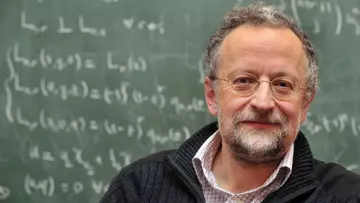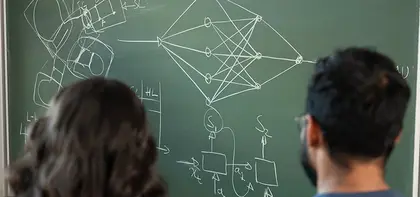
Emeritus Group
Geometry and Complex Systems
The emeritus group of Jürgen Jost is an interdisciplinary research team that on one hand carries out research in pure mathematics and on the other hand explores new approaches to complex systems in a wide range of domains, bringing in the spectrum of mathematical concepts and methods in novel ways.
/
Staff
Katharina Matschke
Assistant to Prof. Jost & Scientific Coordinator
/
Research
Scientific Goals
- Translate the action functionals, the concepts and the computational tools of High Energy Theoretical Physics into mathematical structures. This is both fertile and challenging because of the inherent symmetries and invariances.
- Clarify the fundamental biological concepts and develop the conceptual and mathematical tools for systems biology. How can we integrate detailed studies of individual pathways, coarse-grained network analysis, and modern mathematical data analysis techniques?
- Develop an economic theory that does not depend on the notion of a fully rational representative agent and that does not reduce itself to equilibrium analysis, but that rather focuses on the dynamics of expectations of boundedly rational and heterogeneous individuals. How is information generated and processed in human societies?
- Humans with their limited abilities are often more clever and innovative than theory allows them to be. In particular, they often find creative and unexpected, but efficient shortcuts for solving complicated problems. How to formalize that and translate it into powerful structural heuristics in data analysis and machine learning?
- What is the right relation between theory and data driven approaches? Can we transform mathematics from a tool of science, investigating particular structures emerging from other fields, into a science of tools, proposing which structures to look for and how to do that?
- What are the neuronal dynamics and the rules of thinking, and how are these embodied in the brain, that make the formation of complex concepts like coherent objects with interdependent features possible?
- What is common to the complex systems of biology, cognition and society, and what is specific to each of them? What are the appropriate concepts?
- Formalize and operationalize the concepts and notions of the humanities and social sciences and connect them with the tools of data analysis and machine learning. To what extent can a global, data driven approach (distant reading) complement the traditional study of particular details (close reading)?
News
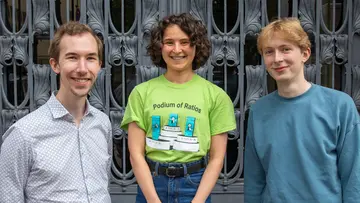
PhD Life
30.05.25
Unsere neuen Promovierenden-Vertreter Unsere neuen Promovierenden-Vertreter
Wir freuen uns, die neu gewählten Doktorand*innen-Vertreter unseres Institut vorzustellen: Herzlichen Glückwunsch an Nicolas Weiss, Nat Kendal-Freedman und Felix Lotter!
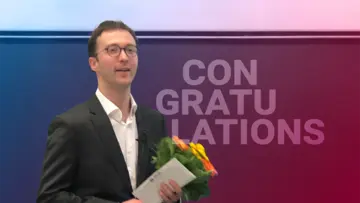
PhD Life
22.04.25
Brückenschlag zwischen Mathematik und Lebenswissenschaften Brückenschlag zwischen Mathematik und Lebenswissenschaften
Wir gratulieren Giulio Zucal zur erfolgreichen Verteidigung seiner Doktorarbeit, in der er innovative Werkzeuge zur Erforschung der Struktur und der zugrunde liegenden Geometrie von Netzwerken vorstellt. Als Postdoktorand im ELBE-Programm erforscht er weiterhin die Verbindung zwischen Mathematik und Lebenswissenschaften.
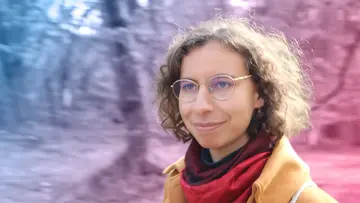
PhD Life
29.10.24
Metaphern erforschen und soziale Transformation mitgestalten Metaphern erforschen und soziale Transformation mitgestalten
Wir gratulieren Marie Teich zur erfolgreichen Promotion im Fachgebiet Digital Humanities. Marie lehrt seit Kurzem an der Amerikanischen Universität in Kiew. Zudem ist sie in einer Foschungsgruppen-Initiative aktiv, die gesellschaftliche und kulturelle Transformationen mitgestaltet. Wir wünschen Marie alles erdenklich Gute!
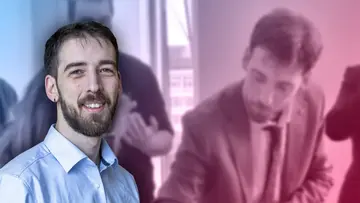
Verschiedenes
16.05.24
Glückwünsche an Fabio Di Nocera Glückwünsche an Fabio Di Nocera
Fabio Di Nocera verteidigte kürzlich erfolgreich seine Dissertation. In dieser erforscht er einen Formalismus für einen einheitlichen theoretischen Rahmen, der es ermöglicht, sowohl die klassische als auch die Quanteninformationsgeometrie gemeinsam zu beschreiben.
Herzlichen Glückwunsch und unsere besten Wünsche für die Zukunft.
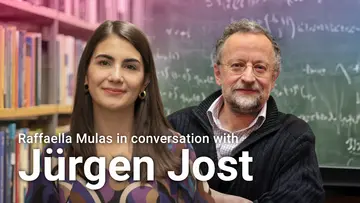
Im Gespräch
15.12.23
Raffaella Mulas im Gespräch mit Jürgen Jost Raffaella Mulas im Gespräch mit Jürgen Jost
Raffaella Mulas, ehemalige Gruppenleiterin am MPI MiS, interviewt Direktor Jürgen Jost. Entdecken Sie Josts Weg in der Mathematik und darüber hinaus und erfahren Sie mehr über die mysteriöse Erdős-Bacon-Zahl in ihrem lockeren Gespräch.
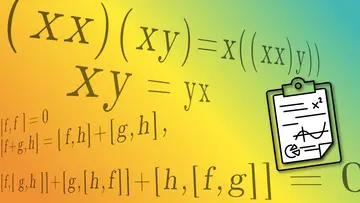
Research Briefs
28.09.23
Was uns die Lie-Algebras über Jordan-Algebras sagen können Was uns die Lie-Algebras über Jordan-Algebras sagen können
Unser jüngster Research Brief aus der Gruppe von Jürgen Jost untersucht Verbindungen zwischen Algebra und Geometrie. Es werden Zusammenhänge zwischen Jordan-Algebras und Lie-Gruppen diskutiert und Symmetrien in algebraischen Strukturen untersucht.

Pressemitteilungen
08.09.23
Was haben Neuronen, Glühwürmchen und Line Dance gemeinsam? Was haben Neuronen, Glühwürmchen und Line Dance gemeinsam?
Synchronisation umgibt uns überall, ist aber bisher nur unzureichend verstanden. Jürgen Jost, Joseph Lizier und Kollegen haben nun neue Instrumente entwickelt, um zu begreifen, wie sich menschliche und natürliche Netzwerke synchronisieren oder entkoppeln.
Members
Staff
Katharina Matschke
Assistant to Prof. Jost & Scientific Coordinator
Group Leader
Eckehard Olbrich
Computational Social Science / Postdoc Contact
Affiliated Member
Hans-Bert Rademacher
Affiliated Member
Matthias Schwarz
Publications
Preprint
2025Separation of time scales in weakly interacting diffusions
inJournal
2025The isochronal phase of stochastic PDE and integral equations : metastability and other properties
In: Journal of differential equationsinJournal
2025On metrics for analysis of functional data on geometric domains
In: Foundations of data scienceinJournal
2025Pathway realizability in chemical networks
In: Journal of computational biologyinJournal
2025Directed transit functions
In: Results in mathematicsinJournal
2025Stochastic partial differential equations arising in self-organized criticality
In: The annals of applied probabilityinJournal
2025Biased processing and opinion polarization : experimental refinement of argument communication theory in the context of the energy debate
In: Sociological methods and researchPreprint
2025Efficient compression of neural networks and datasets
Preprint
2025Geometry and Dress groups with non-symmetric cost functions
Preprint
2025Merging hazy sets with m-schemes : a geometric approach to data visualization
Preprint
2025China's rise in the chemical space and the decline of US influence
inJournal
2025

